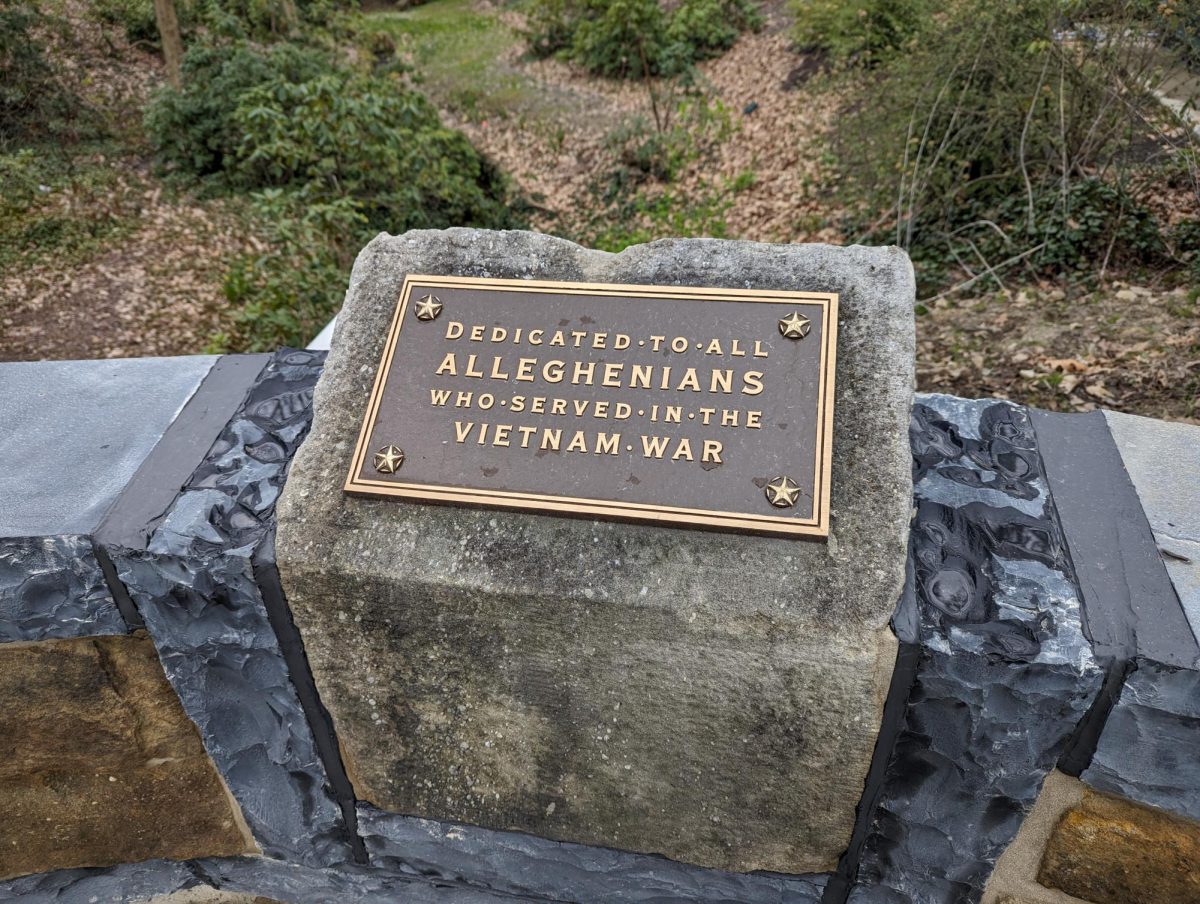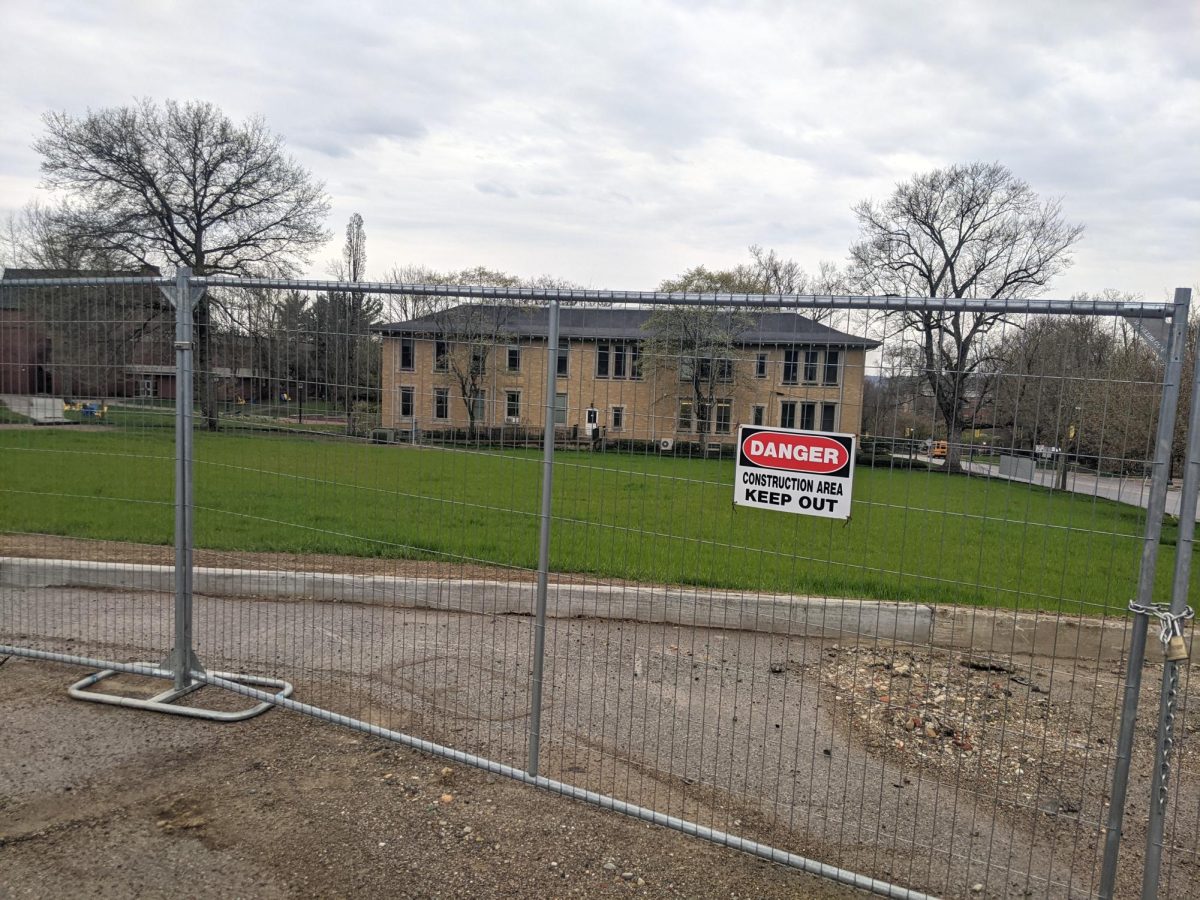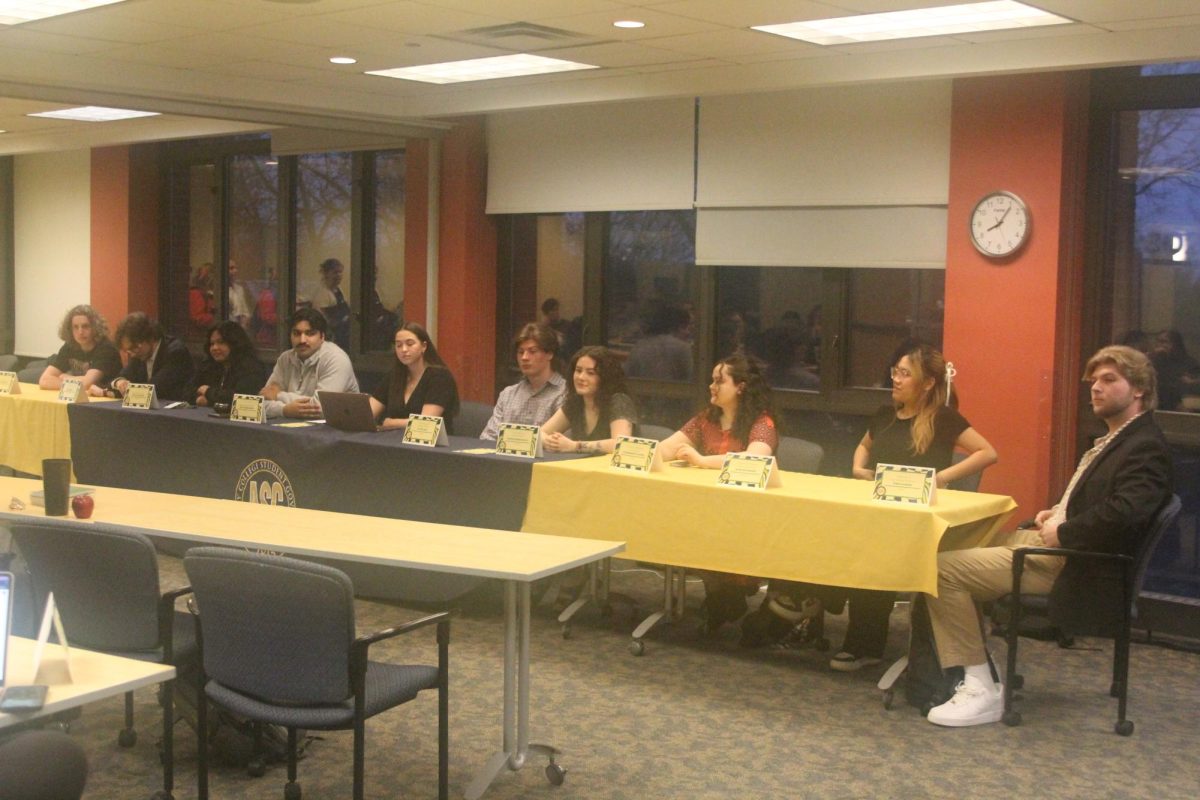Several Allegheny students, faculty and staff members participated in a nationally-broadcasted, informative webinar yesterday that discussed various forms of power, privilege and marginalization affecting individuals and, in particular, college students. The webinar was hosted by the American College Personnel Association, an international student affairs association that aims to lead members of the higher education community in fostering learning.
In an effort to further advocacy for all different types of students, valerie guerrero, Assistant Director for the Center for Intercultural Advancement and Student Success, arranged for Allegheny’s participation in the webinar, which took place in Murray Hall’s video conference room.
“I think everyone needs to be a part of education. To be a better advocate, you need education,” guerrero said. “My hope is that people will see, if they explore their own identities more…how they can benefit from that both personally and professionally.”
The various standing committees on the ACPA host free webinars quite frequently. This particular hour-long webinar was coordinated by the ACPA’s Standing Committee for Lesbian, Gay, Bisexual and Transgender Awareness.
Senior lecturer at Ohio State University Dr. Chris Linder facilitated the webinar and encouraged participants to contribute questions and comments via either dialogue box, a microphone or Twitter. Participants of all ages and positions tweeted from Harvard University, University of Maryland, Stetson University and University of Kansas, among others.
guerrero, a member of ACPA’s directorate board for the Commission of Social Justice Educators, said it is vital that higher education institutions strive to make all student populations feel welcome. She said student advocacy is one of the main foundations for CIASS’ existence and for her position here at Allegheny.
“We need to understand that people are coming from all different types of educational experiences and that those should be validated,” she said. “It’s not that we should have one particular type of student, or one particular type of learning that happens.”
During the webinar, Linder reflected on “mirroring,” a tactic members of underrepresented populations often employ to gain power. She cited gay marriage as one area of debate in which mirroring is especially common.
“It’s like, ‘See, we are just like you,’” Linder said. “But who do we hurt in trying to become more like the norm?”
She said because mirroring aims to eliminate differences between populations, it can actually contribute to marginalization of already-underrepresented groups.
A main focus of the webinar was intersectionality, the notion that we each belong to a variety of social identities, some of which become more salient or distant depending on what context we are currently in. Linder referred to this idea as the Model of Multiple Dimensions of Identity, MMDI.
Associate Dean and Director of CIASS Kazi Joshua elaborated on the MMDI, agreeing with Linder that identities constantly fluctuate depending on the settings in which people find themselves.
“Often there is a temptation of this binary kind of locations, to simply identify with that part of who you are that you feel is under assault or is under contestation,” said Joshua. “I thought the webinar challenged us to examine the assumptions of our identity…it is possible to be in a status of marginalization in one location, but also in a position of privilege in another.”
Joshua used his own undergraduate experience as an example. He explained that while a student in the primarily white environment of Burlington, Vt., he was often tempted to view himself, first and foremost, as black.
“Well, I’m also male. And so I have to be cognizant that…I may be using male privilege,” he said. “I’m also part of a particular [socio-economic] class, so I have to be cognizant of that.”
The webinar did not cite socio-economic class as one of the categories for social identities, some of which included gender, race, gender identity, sexual identity and ability. However, Joshua said socio-economic status is crucial to consider when evaluating different levels of power, privilege and marginalization among students.
“Not to recognize the impact of socio-economic status in this country is a fundamental problem,” he said.
Though socio-economic class may not be as immediately identifiable as some other identity categories–such as race or gender–it is just as important to understanding the differences between students’ experiences.
“You may not see class, but [class] as a category on Allegheny’s campus is playing out every day, and students’ experiences are fundamentally different because of the socio-economic class where their parents come from,” Joshua said.
Joshua also said that within higher education, identities tend to change even more often.
“We are in a college setting in which it is not just your specific identity – gay, straight, bisexual, black, Latino – that’s at stake here. You’re also developing as a human being,” Joshua said.
He said that ACPA’s webinar promoted the development of college students.
“What the webinar invited us to do was, try to suggest in our work with students that you are not a solid concrete box. You are consistently evolving, exploring, and hence, developing,” Joshua said.
However, personal exploration and evolution does not end after college graduation. guerrero spoke to the importance of educating all members of the college community in inclusivity and intersectionality.
“Obviously students are the key, but I think it’s really important for staff and faculty to know that we can learn as much from students as they can learn from us,” guerrero said.
guerrero said she hoped the webinar would encourage Allegheny community members to actively promote inclusivity by possessing genuine concern for the people around them.
“You can learn so much just from hearing a person’s story and how it is they made it to college,” guerrero said. “Some people end up with more hoops to jump through than other people. Some people, pretty much as soon as they hit kindergarten, they know they’re college bound; they hear that from their parents.”
The ACPA aims to maximize students’ full potential as learners and individuals, by facilitating higher education environments in which they can live and work comfortably. guerrero also shares this goal.
“I want to create a space where everyone knows they are supposed to be here. Not just a certain experience is supposed to be here,” she said. “If [students] get in the habit of getting to know people, their perspectives, now when they’re undergrads, it’s going to make them more well-rounded when they go out into the job market and try to make a life after Allegheny.”
guerrero said that many Allegheny students have told her respect is important to them. She reflected on different interpretations of respect.
“Some people interpret that to mean, I’m going to respect you, which means I’m going to leave you alone so you’re able to live your life the way you want,” guerrero said. “But that doesn’t mean you don’t inquire about their goals, or why it is important to them to live their life that way.”
Although she admitted it can be easy for anyone to fall into a pattern of seeing the same people, guerrero said it is important to constantly reach out to new people, as well.
“I am a product of the many communities that have brought me up…this is my 29th move in my lifetime,” guerrero said. “I encourage students to get to know each other. That’s how we really develop an inclusive environment, but also how we can live up to the standard that we boast about in our admissions marketing.”
In order for Allegheny to be a college that can change lives, students must feel confident that their neighbors and classmates care about one another’s academic and personal successes.
“I don’t necessarily think it’s polite to let everyone go on their own way. I think to create a community of caring, you have to be invested in those people,” guerrero said. “Hear about their journey, where they came from, where they want to go and how you might contribute to that.”






